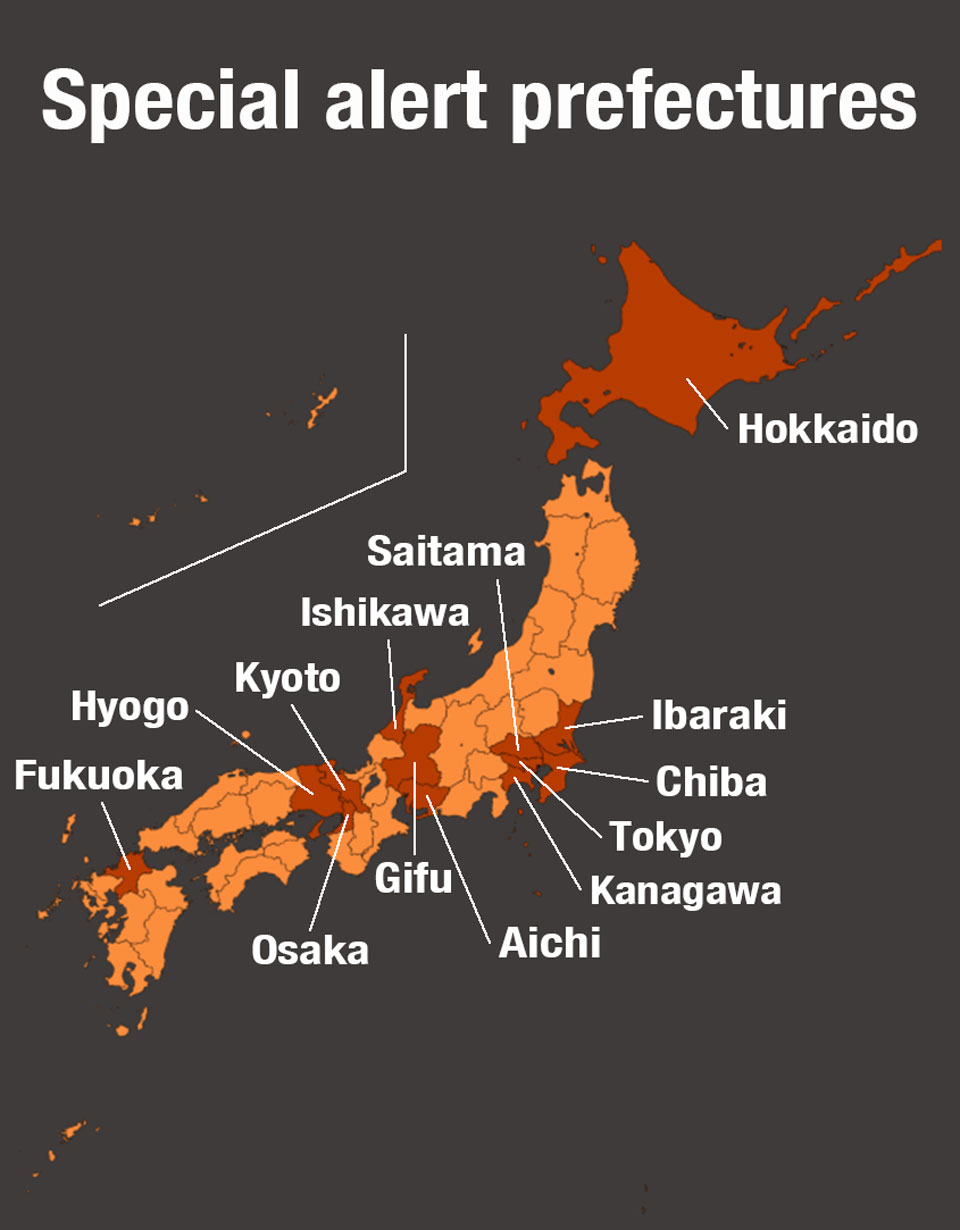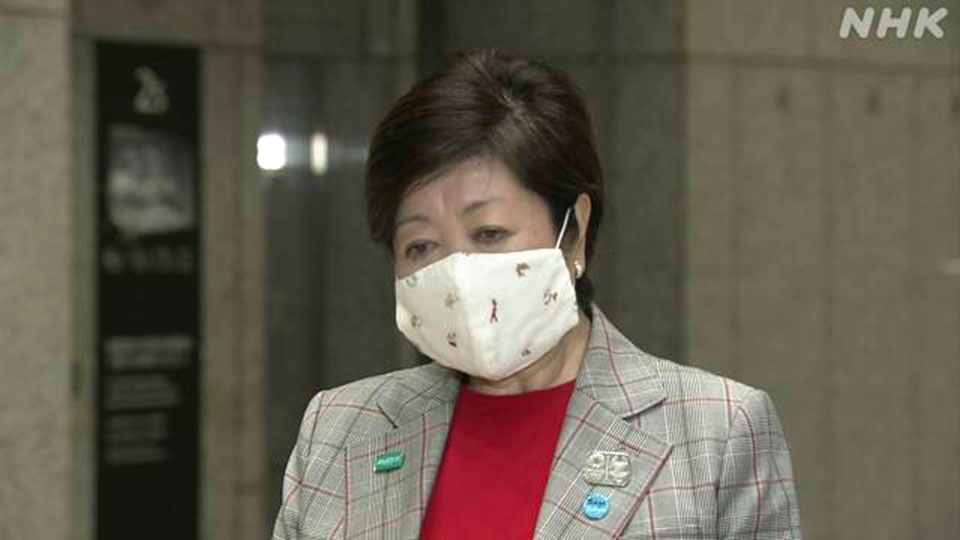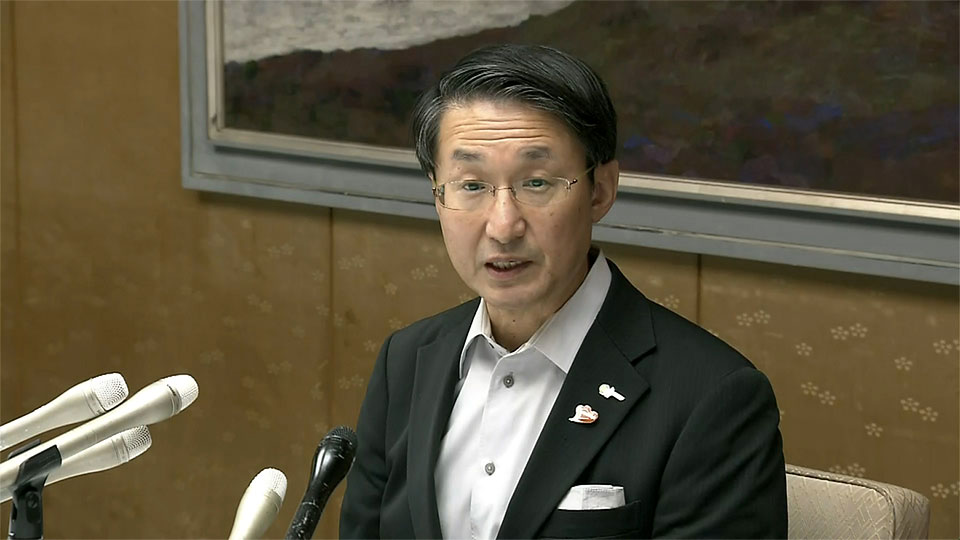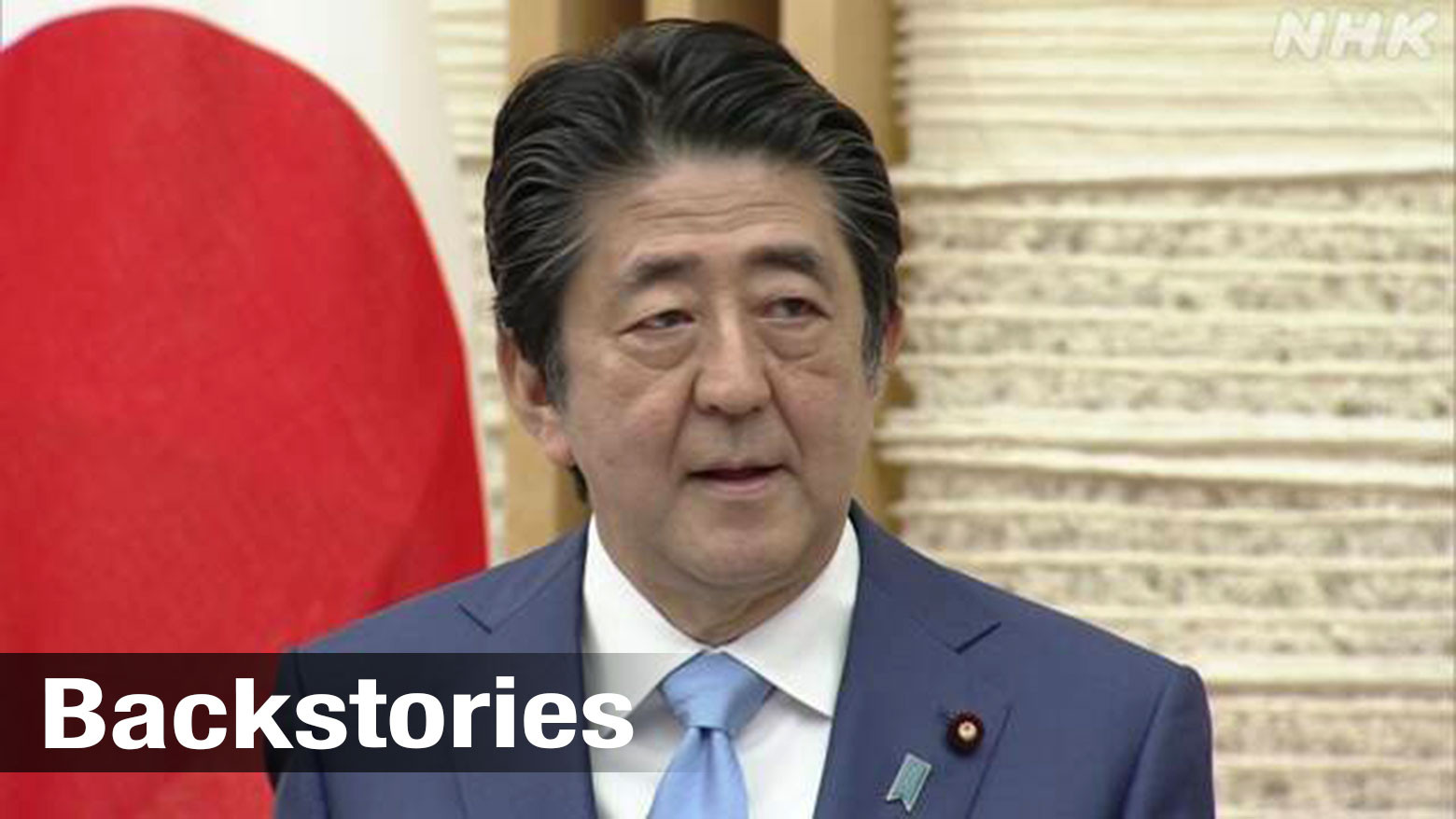
The emergency declaration was set to expire on May 6. But Abe says another month is needed to ease the strain on the country’s medical system.
The government will keep strict measures in place for the 13 “special alert” prefectures, which include Tokyo and Osaka.
The government is targeting an 80% reduction in person-to-person contact. To that end, it is asking residents to continue refraining from all but essential excursions.
Tokyo is the hardest-hit prefecture, with more than 4,600 cases. Governor Koike Yuriko says the capital has no choice but to continue its efforts to contain the spread of the virus.

But experts say other prefectures should be allowed to ease restrictions. They say some businesses, including department stores and theaters, can reopen, as long as infection prevention measures are kept in place. They say residents in these prefectures should still continue to avoid closed, crowded, and close-contact settings.
Tottori Prefecture has only reported three cases so far and Governor Hirai Shinji says some facilities should be allowed to reopen after the weeklong spring holiday. He says doing so would show that local governments can manage the virus without bringing economic activity to a complete halt.

Abe says the circumstances require the country to adapt to a new way of life, and is calling on people to change their behavior.
“If we continue strict restrictions on economic and social activities, we won’t be able to sustain our lives,” Abe said. “Instead, we have to come up with new daily routines that are based on the assumption that the virus will always be here. We need to do this as soon as possible.”
The Prime Minister added that the state of emergency could be lifted before the new end date if an expert panel deems it possible. Abe said the panel will brief him around May 14 on how infections are trending and the state of the medical system by region.
The panel has outlined a series of recommendations to guide the country through the pandemic. It urges residents to make these habits a part of their everyday routine. They include:
・Wear a face mask when outside and maintain a distance of at least two meters between other people.
・Wash your hands with soap for at least 30 seconds as soon as you get home. Wash your face.
・Avoid confined and crowded spaces.
・Monitor your health. Take your temperature every morning.
・Take notes on where you go and who you meet in case you get infected.
Work
・Try to work from home and adjust your hours so you avoid crowded offices and public transportation.
Shopping and dining
・Shop quickly. Go by yourself or in a small group. Visit stores when they are not crowded. Pay cashless so you can avoid contact with the cashier.
・If you manage a dining or retail establishment, turn away anyone who is showing symptoms. Maintain strict hygiene standards. Discourage customers from eating in close proximity or having face-to-face conversations.

